This fall, Harvard Law School showcased the works of faculty, alums, and other affiliated individuals at book events throughout the semester. The Harvard Law School Library continued its ongoing series of book talks featuring works by Cass Sunstein ’78, John Coates, Alan Jenkins ’89, and Alicia Ely Yamin, while book discussions were also held at and sponsored by entities across the school, including the Program on Neotiation, the Berkman Klein Center, the Human Rights Program, and a number of student organizations. Here, we feature a selection of the book events that took place during the fall semester.
How to Interpret the Constitution
Cass Sunstein ’78
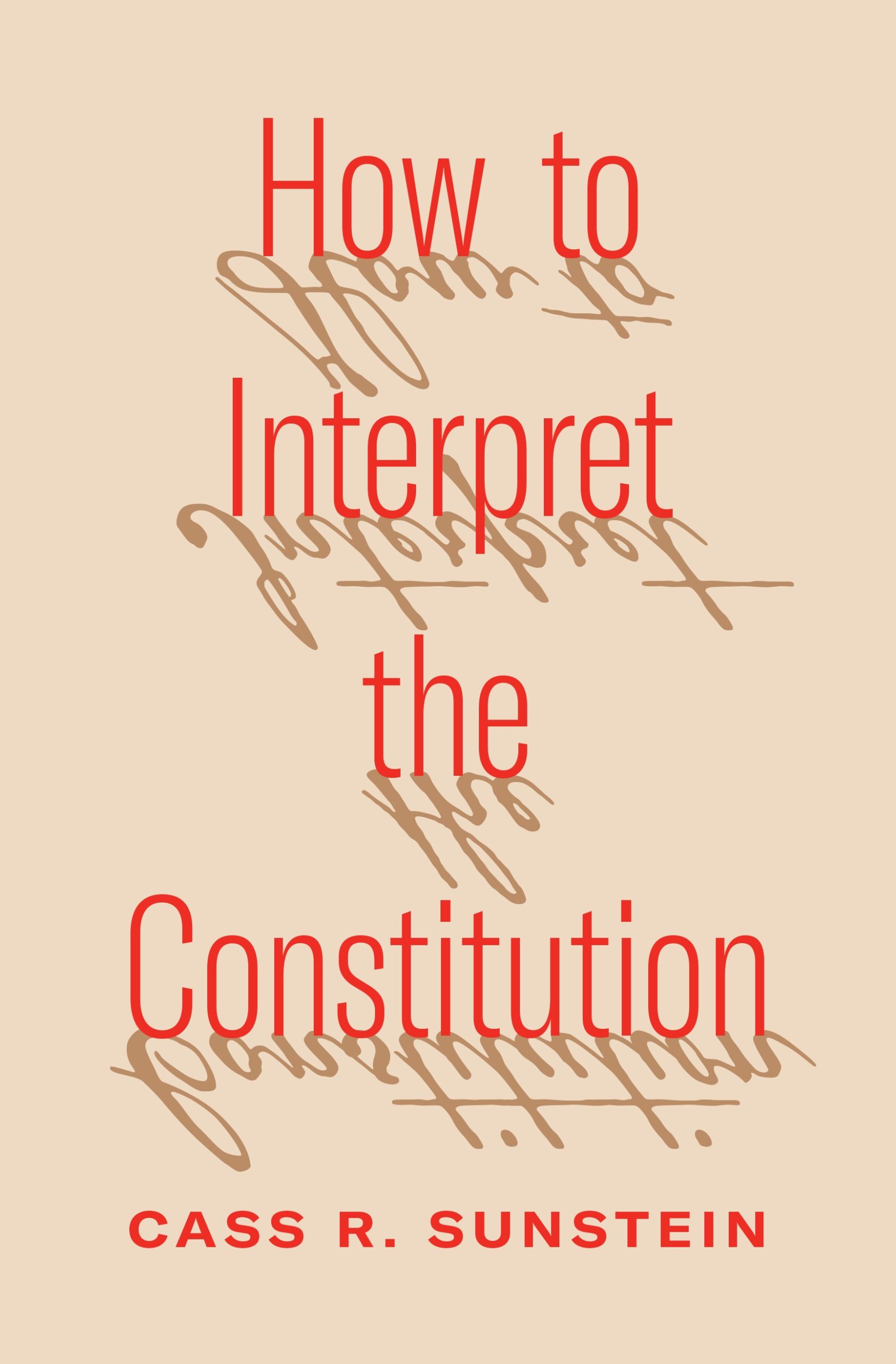
In his new book “How to Interpret the Constitution,” Cass Sunstein ’78, Robert Walmsley University Professor at Harvard, argues that an interpretation should be based on the question of whether it would change American life for the better or worse. This idea was the springboard for a lively hour of discussion at a Harvard Law School Library book talk, including perspectives from Harvard psychology professor Steven Pinker and Harvard Law School Professor Richard H. Fallon Jr.
From Princeton University Press: “The U.S. Supreme Court has eliminated the right to abortion and is revisiting other fundamental questions today — about voting rights, affirmative action, gun laws, and much more. Once-arcane theories of constitutional interpretation are profoundly affecting the lives of all Americans. In this brief and urgent book, Harvard Law School professor Cass Sunstein provides a lively introduction to competing approaches to interpreting the Constitution — and argues that the only way to choose one is to ask whether it would change American life for the better or worse. If a method of interpretation would eliminate the right of privacy, allow racial segregation, or obliterate free speech, it would be unacceptable for that reason.
“But some Supreme Court justices are committed to ‘originalism,’ arguing that the meaning of the Constitution is settled by how it was publicly understood when it was ratified. Originalists insist that their approach is dictated by the Constitution. That, Sunstein argues, is a big mistake. The Constitution doesn’t contain instructions for its own interpretation. Any approach to constitutional interpretation needs to be defended in terms of its broad effects — what it does to our rights and our institutions. It must respect those rights and institutions — and safeguard the conditions for democracy itself.
“Passionate and compelling, ‘How to Interpret the Constitution’ is essential reading for anyone who is concerned about how the Supreme Court is changing the rights and lives of Americans today.”
The Problem of Twelve
John Coates
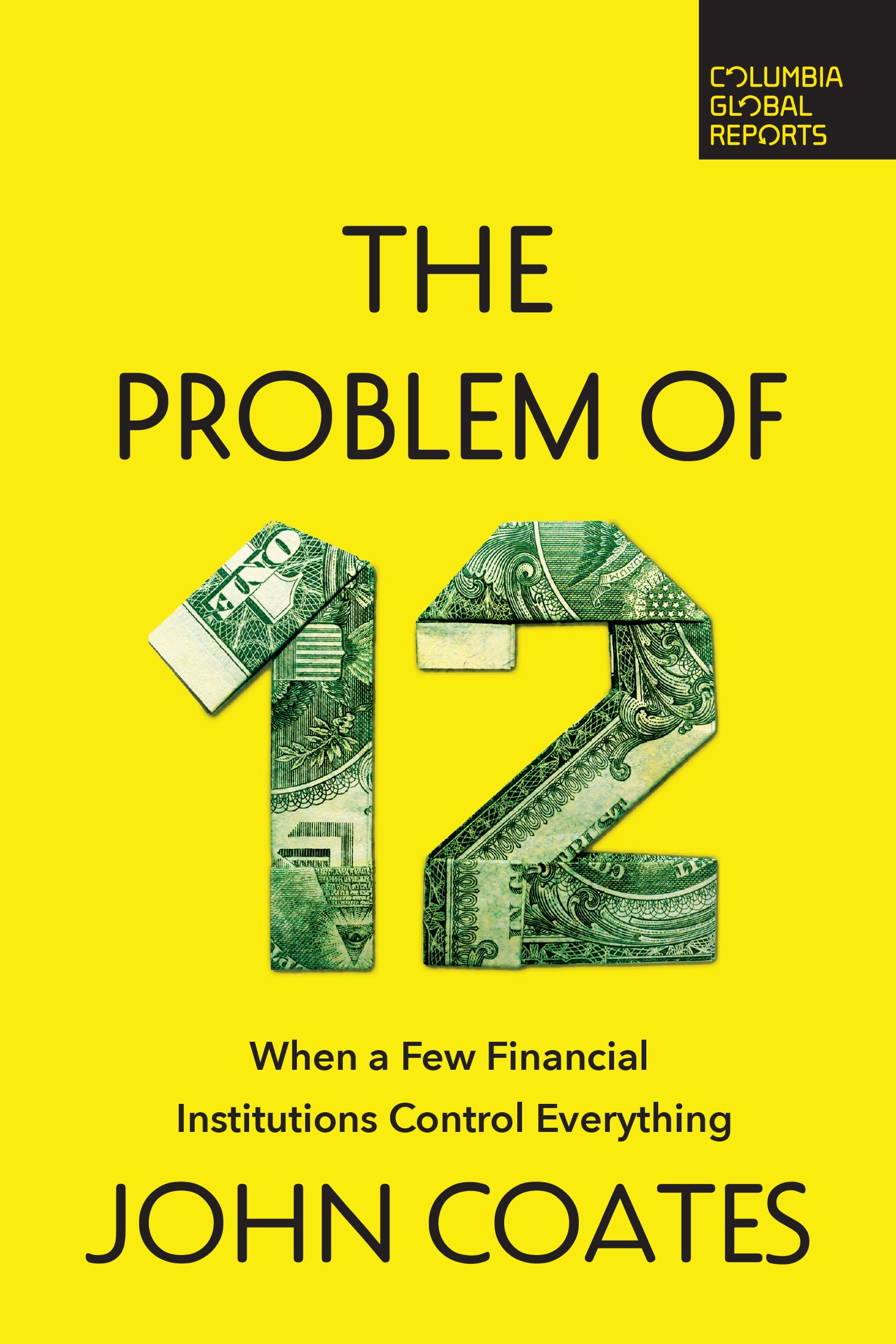
In his new book, “The Problem of Twelve: When a Few Financial Institutions Control Everything,” John Coates, John F. Cogan, Jr. Professor of Law and Economics at Harvard, argues that a remarkable concentration of wealth and power in a few hands poses a threat to American democracy and has already begun to inspire responses from politicians that risk doing more harm than good. At a Harvard Law School Library book talk, Coates was joined in discussion by panelists Guy-Uriel Charles, Charles J. Ogletree Jr. Professor of Law at Harvard Law School, and Shawn Cole, John G. McLean Professor of Graduate Business Administration at Harvard Business School.
From Columbia Global Reports: “A ‘problem of twelve’ arises when a small number of institutions acquire the means to exert outsized influence over the politics and economy of a nation.
“The Big Four index funds of Vanguard, State Street, Fidelity, and BlackRock control more than twenty percent of the votes of S&P 500 companies — a concentration of power that’s unprecedented in America. Then there’s the rise of private equity funds, such as the Big Four of Apollo, Blackstone, Carlyle, and KKR, which have amassed $2.7 trillion of assets, and are eroding the legitimacy and accountability of American capitalism — not by controlling public companies, but by taking them over entirely, and removing them from public disclosure and scrutiny.
“This quiet accumulation in the last few decades represents a dramatic transformation in how the American economy operates—a sea change that few of us have noticed and all of us need to consider. Harvard Law professor John Coates forcefully calls our attention to what is sure to be one of the major political and economic issues of our time.”
1/6: The Graphic Novel
Alan Jenkins ’89 and Gan Golan, illustrated by Will Rosado
At a Harvard Law School Library book talk in October, Professor of Practice Alan Jenkins ’89, discussed the graphic novel series “1/6: The Graphic Novel,” which he created with graphic novelist Gan Golan and illustrator Will Rosado. Cartoonist, illustrator, and visiting lecturer on film and visual studies at Harvard University, Peter Kuper joined Jenkins to discuss the history of comic book culture.
From the OneSixComics: “In the tradition of speculative fiction from George Orwell’s 1984 to Margaret Atwood’s Handmaid’s Tale to the Twilight Zone, ‘1/6: The Graphic Novel’ explores themes of autocracy, scapegoating, strategic disinformation, and more, all told through a compelling, character-driven story. Drawing on real-life events, ‘1/6’ travels the road that led from back-room meetings, white supremacist rallies, and the Four Seasons Landscaping parking lot to a violent attack on the Capitol that left several Americans dead and shook our nation to its core. It then imagines a world in which the events of that day turned out very differently.”
When Misfortune Becomes Injustice
Alicia Ely Yamin ’91
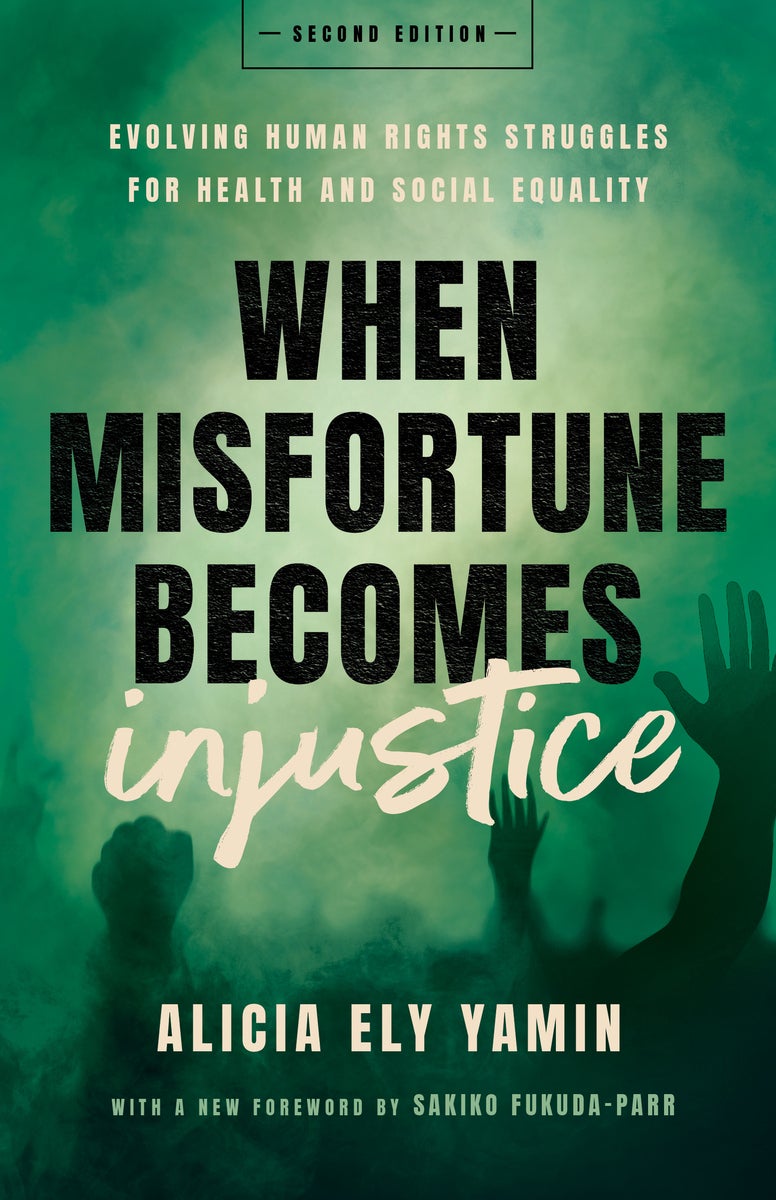
This Library book talk, co-sponsored by the Petrie-Flom Center for Health Law Policy, Biotechnology, and Bioethics at Harvard Law School, brought together author and Lecturer on Law Alicia Ely Yamin ’91 with panelists Aziza Ahmed (Boston University Law School), Jesse Bump (Harvard T.H. Chan School of Public Health), and Louise Ivers (Harvard Global Health Institute) for a discussion on the second edition of her book, “When Misfortune Becomes Injustice: Evolving Human Rights Struggles for Health and Social Equality.”
From Stanford University Press: “‘When Misfortune Becomes Injustice’ surveys the progress and challenges in deploying human rights to advance health and social equality over recent decades. Alicia Ely Yamin weaves together theory and firsthand experience in a compelling narrative of how evolving legal norms, empirical knowledge, and development paradigms have interacted in the realization of health rights, and challenges us to consider why these advances have failed to produce greater equality within and between nations.
“In this revised and expanded second edition, Yamin incorporates crucial lessons learned about the state of global health equity and public health systems during the COVID-19 pandemic, demonstrating just how incompatible the current institutionalized world order — based on neoliberal, financialized capitalism — is with one in which the rights of diverse people around the globe can be realized. COVID-19 struck a world that had been shaped by decades of disinvestment in public health, health systems, and social protection, as well as privatization of wealth and gaping social inequalities within and between countries, and the evident crisis of confidence in the capacity of democratic political institutions and global governance was deepened by the pandemic. Yamin argues that transformative human rights praxis in health calls for addressing issues of structural inequality and political economy, and working across disciplinary silos through networks and social movements.”
The Quantified Worker: Law and Technology in the Modern Workplace
Ifeoma Ajunwa
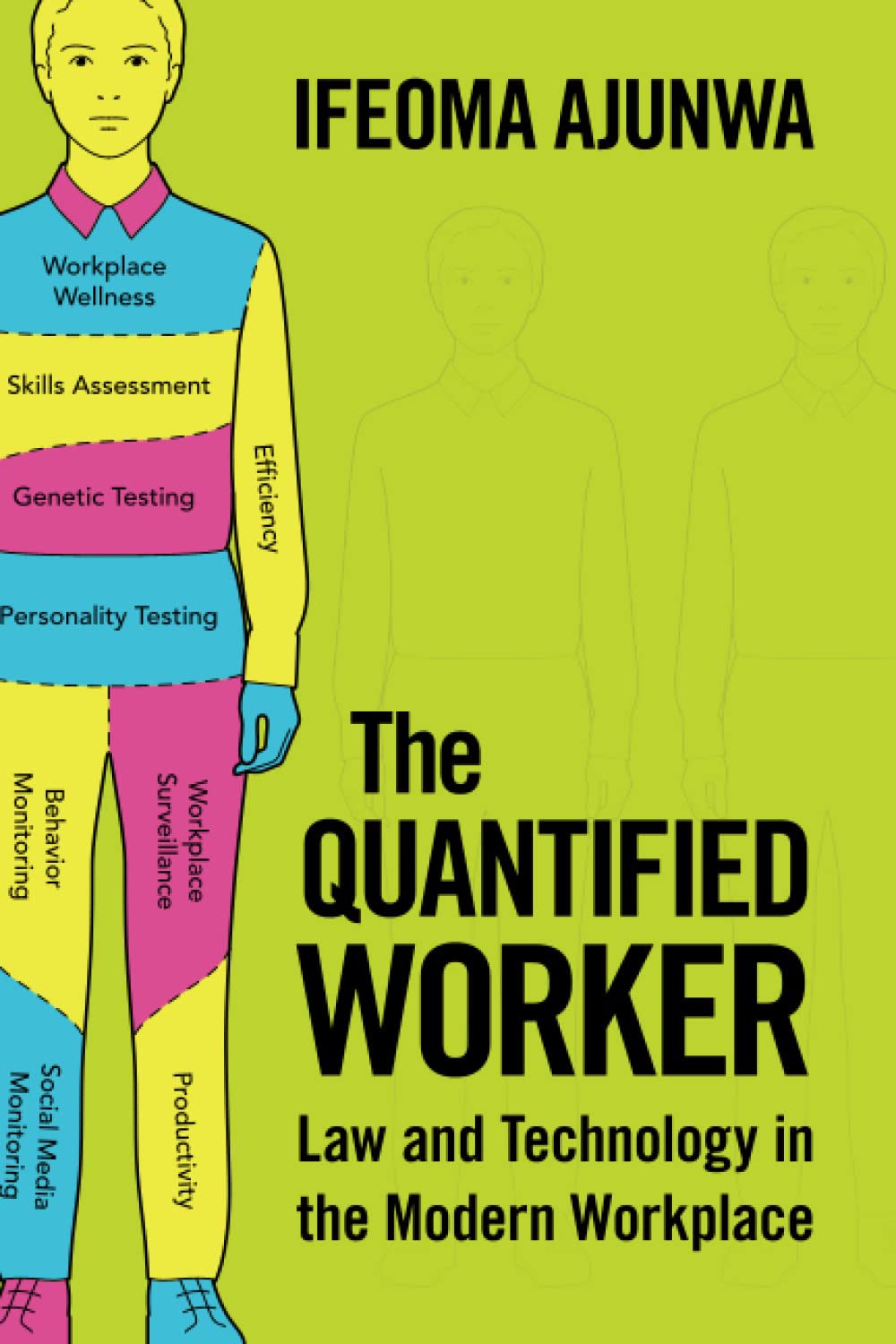
Co-sponsored by the Petrie-Flom Center for Health Law Policy, Biotechnology, and Bioethics, the Berkman Klein Center for Internet and Society, and the Center for Labor and a Just Economy, this event featured the author, Emory Law Professor and Berkman Klein Faculty Associate Ifeoma Ajunwa in conversation with Yochai Benkler, Berkman Professor for Entrepreneurial Legal Studies and BKC faculty co-director, and Professor of Practice and CLJE Executive Director Sharon Block.
From Cambridge University Press: “The information revolution has ushered in a data-driven reorganization of the workplace. Big data and AI are used to surveil workers and shift risk. Workplace wellness programs appraise our health. Personality job tests calibrate our mental state. The monitoring of social media and surveillance of the workplace measure our social behavior. With rich historical sources and contemporary examples, ‘The Quantified Worker’ explores how the workforce science of today goes far beyond increasing efficiency and threatens to erase individual personhood. With exhaustive detail, Ifeoma Ajunwa shows how different forms of worker quantification are enabled, facilitated, and driven by technological advances. Timely and eye-opening, ‘The Quantified Worker’ advocates for changes in the law that will mitigate the ill effects of the modern workplace.”
Difficult Conversations: How to Discuss What Matters Most
Sheila Heen ’93, Bruce Patton ’84, and Douglas Stone ’84
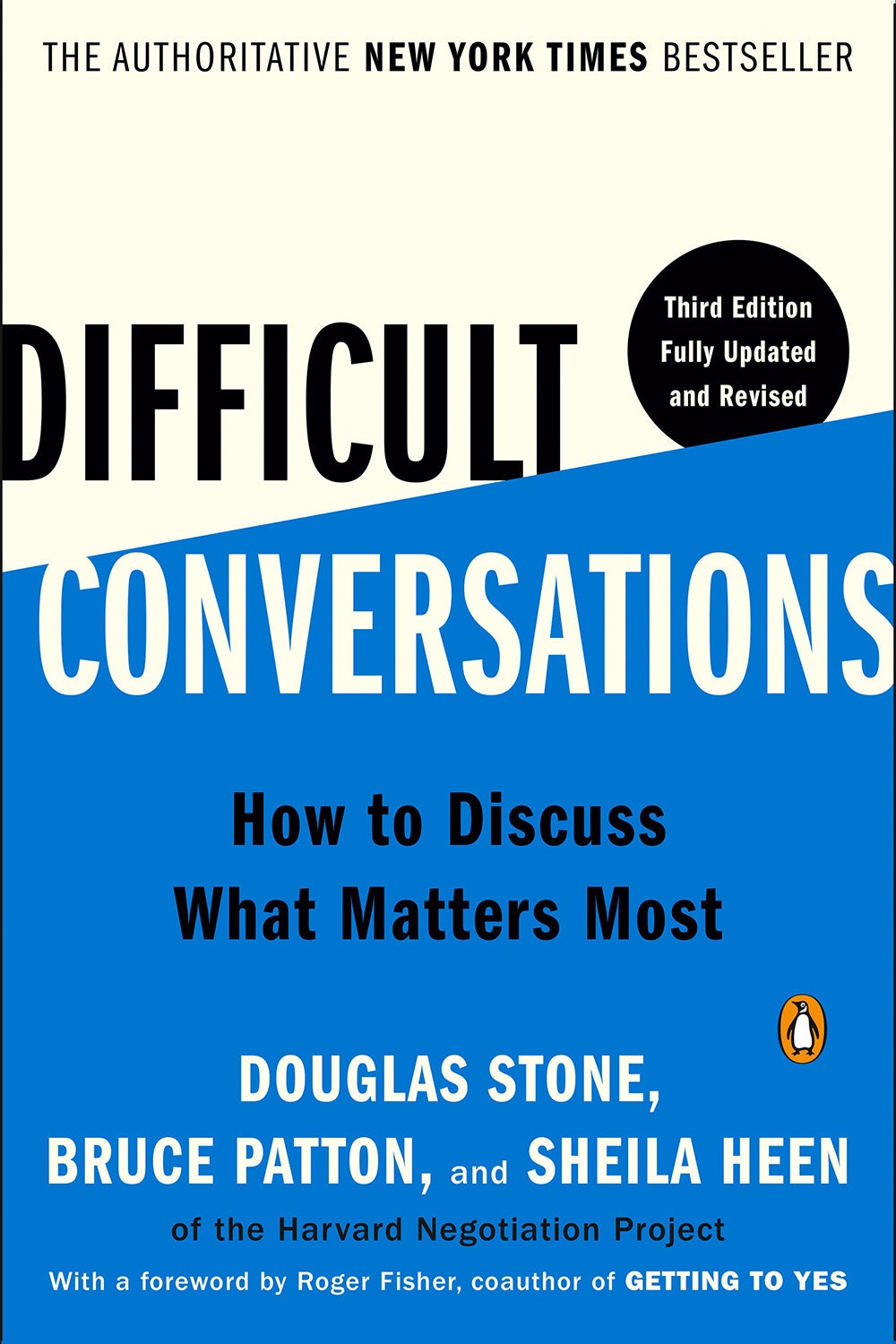
As part of their PON Live! series, the Program on Negotiation hosted authors Sheila Heen ’93, Thaddeus R. Beal Professor of Practice and Lecturer on Law Douglas Stone ’84, both of the Harvard Negotiation Project, for a candid discussion of what the authors have learned since the first edition was published over twenty years ago, as well as what they are still investigating when it comes to the difficult conversations in all areas of life.
From Penguin Random House: “Whether dealing with an underperforming employee or a challenging colleague, disagreeing with your spouse about money or child-rearing, negotiating with a client, or simply saying ‘No,’ ‘I’m sorry,’ or ‘I love you,’ we attempt or avoid difficult conversations every day. No matter how competent we are, we all have conversations that cause anxiety and frustration.
“This book can help. Based on almost thirty years of research, ‘Difficult Conversations’ walks you through a step-by-step approach for how to have your toughest conversations with less stress and more success.
“Filled with examples from everyday life, this third edition is thoroughly updated and addresses issues such as race, culture, gender, power, social media, and communicating via technology as we talk to one another across the world — and across worldviews. With constructive communication an ever more critical need in personal, professional, and public life, ‘Difficult Conversations’ is a classic you will turn to again and again for powerful, practical advice.”
Of Law and the World: Critical Conversations on Power, History, and Political Economy
David Kennedy ’80 and Martti Koskenniemi
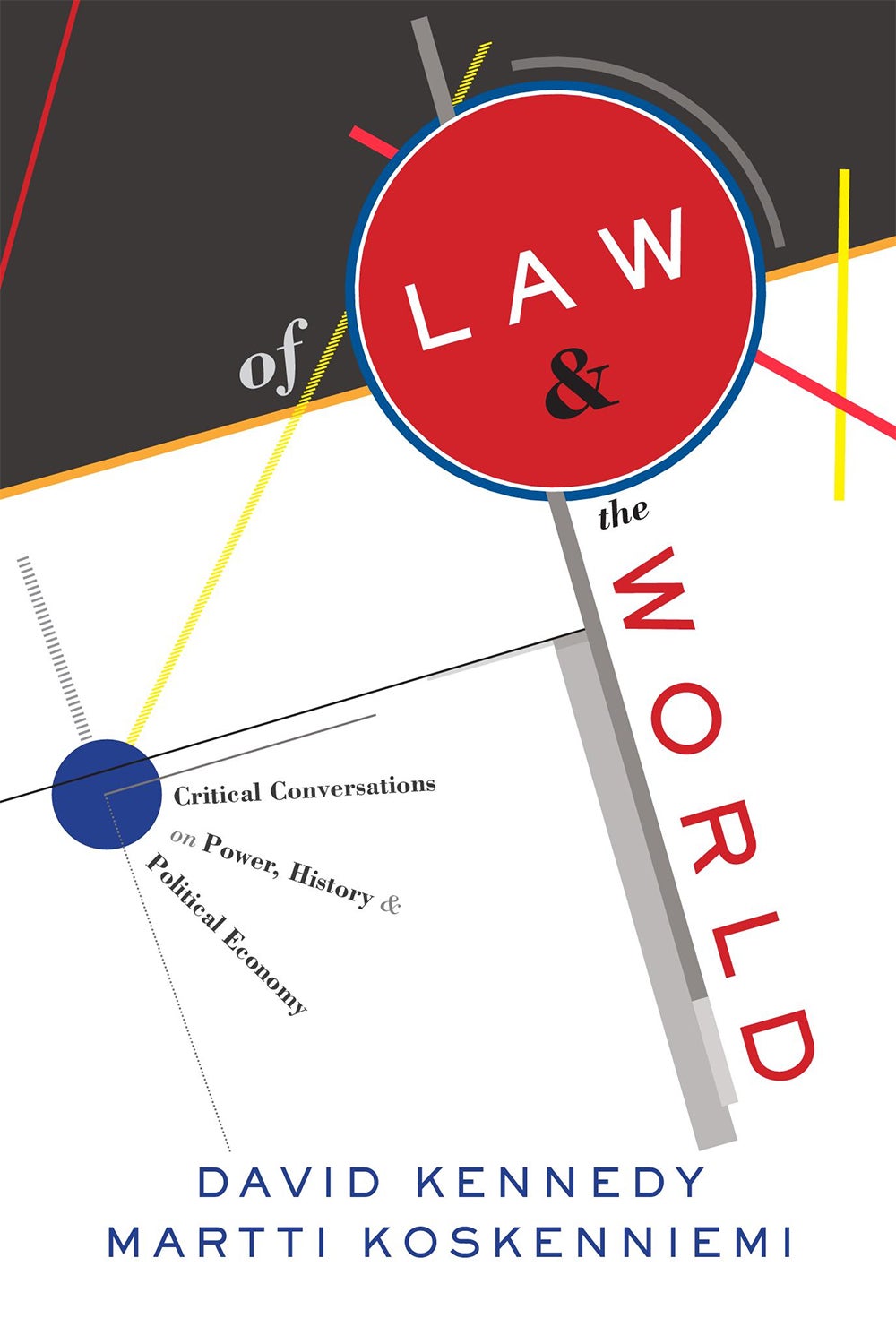
This fall brought together Professors David Kennedy ’80, Manley O. Hudson Professor of Law and faculty director of Harvard Law’s Institute for Global Law and Policy, and Martti Koskenniemi, William D. Zabel ‘61 Visiting Professor in Human Rights and professor emeritus of international law at the University of Helsinki, for a discussion of their new book, “Of Law and the World: Critical Conversations on Power, History, and Political Economy,” described as “a searching dialogue between two leading legal scholars exploring the place of law in global affairs.”
From Harvard University Press: “The modern world is legalized: Legal language, institutions, and professionals are everywhere. But what is law’s power in global life? What does all this legality have to do with hegemony, with hierarchy and inequality, and with the diversity of human experience? What is its history and how does that history matter in world affairs? Above all, what does it mean to think ‘critically’ about law and global affairs? In this poignant and iconoclastic book, two leading scholars take us to the heart of the matter, examining law’s relationship with history, power, and political economy.
“David Kennedy and Martti Koskenniemi have often inspired each other and are both considered ‘critical’ voices in international law, but they have never explored their similarities and differences as deeply as they do here. ‘Of Law and the World’ takes the form of a conversation, as the authors reflect on the study of international law, the motivations underlying their research, and the payoffs and limitations of their investigations into law’s role in global affairs. They revisit and renew debates about the past and future of the many legalities that shape our world.
“Erudite, open-minded, and informed by decades of experience and observation, ‘Of Law and the World’ is an unflinchingly honest confrontation with humanity’s struggle to live together.”
Data and Democracy at Work
Brishen Rogers ’06
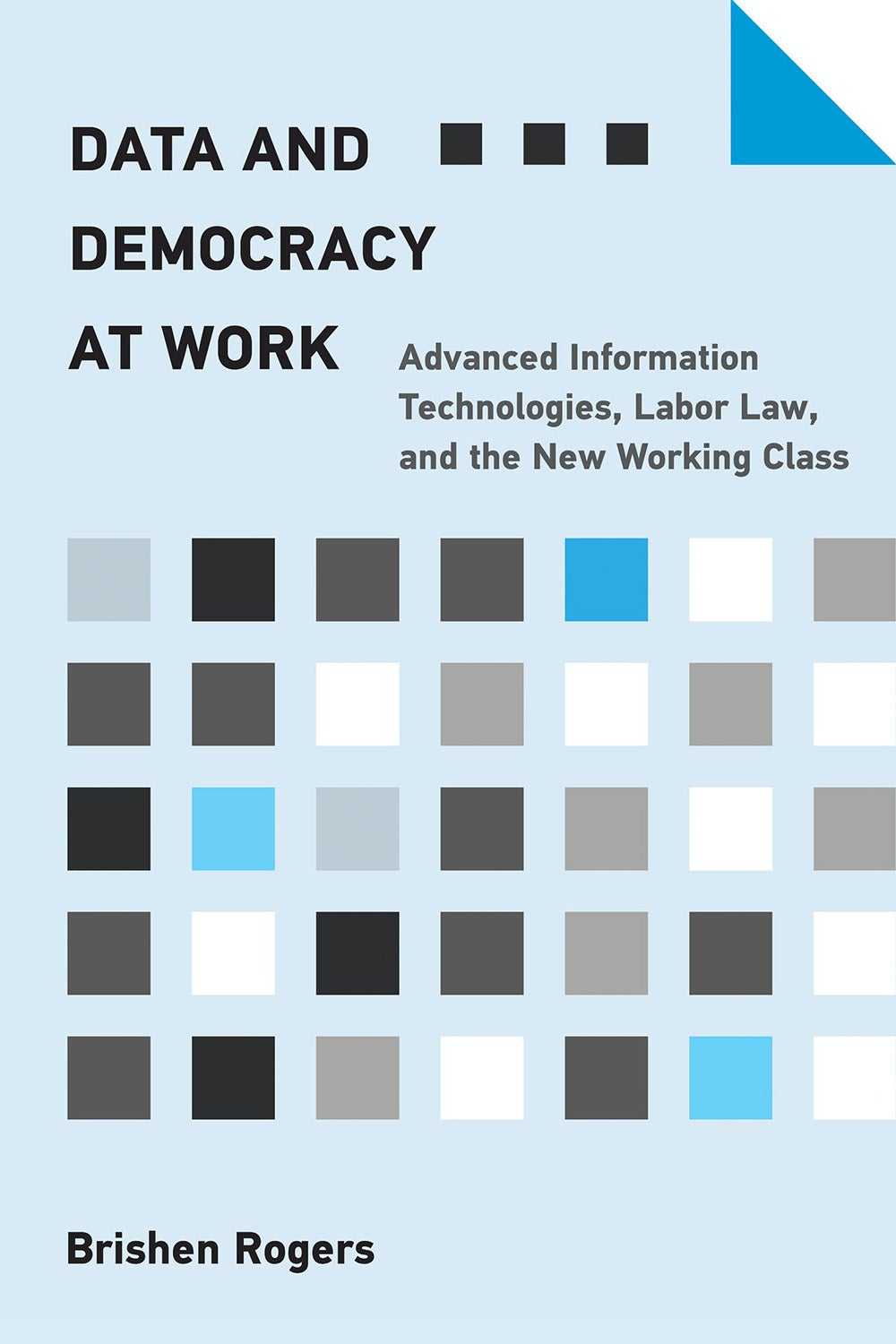
The Center for Labor and a Just Economy welcomed Brishen Rogers ’06 for a discussion of his book, “Data and Democracy at Work: Advanced Information Technologies, Labor Law, and the New Working Class.” In the book, Rogers explores how major companies like Amazon, Uber, and McDonald’s have used new information technologies to limit worker power, and how our labor laws have facilitated those efforts. The book also outlines reforms that would give workers a meaningful voice in workplace technology.
From MIT Press: “As our economy has shifted away from industrial production and service industries have become dominant, many of the nation’s largest employers are now in fields like retail, food service, logistics, and hospitality. These companies have turned to data-driven surveillance technologies that operate over a vast distance, enabling cheaper oversight of massive numbers of workers. ‘Data and Democracy at Work’ argues that companies often use new data-driven technologies as a power resource — or even a tool of class domination — and that our labor laws allow them to do so.
“This book describes the necessary legal reforms to increase workers’ associational power and democratize workplace data, establishing more balanced relationships between workers and employers and ensuring a brighter and more equitable future for us all.”
Radical Acts of Justice
Jocelyn Simonson ’06
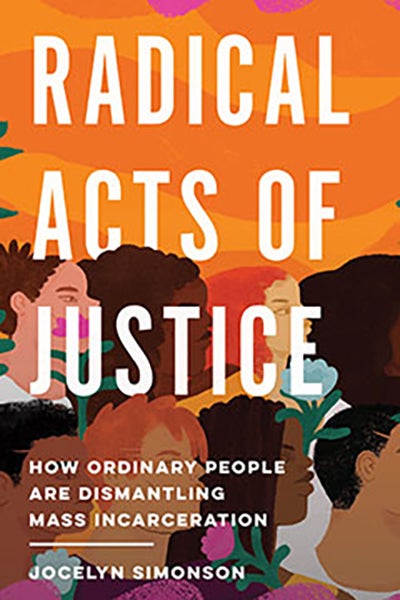
Author Jocelyn Simonson ’06, professor of law at Brooklyn Law School, joined the Institute to End Mass Incarceration for a discussion of her book “Radical Acts of Justice: How Ordinary People are Dismantling Mass Incarceration.”
From The New Press: “From reading books on mass incarceration, one might conclude that the way out of our overly punitive, racially disparate criminal system is to put things in the hands of experts, technocrats able to think their way out of the problem. But, as Jocelyn Simonson points out in her groundbreaking new book, the problems posed by the American carceral state are not just technical puzzles; they present profound moral questions for our time.
“‘Radical Acts of Justice’ tells the stories of ordinary people joining together in collective acts of resistance: paying bail for a stranger, using social media to let the public know what everyday courtroom proceedings are like, making a video about someone’s life for a criminal court judge, presenting a budget proposal to the city council. When people join together to contest received ideas of justice and safety, they challenge the ideas that prosecutions and prisons make us safer; that public officials charged with maintaining ‘law and order’ are carrying out the will of the people; and that justice requires putting people in cages. Through collective action, these groups live out new and more radical ideas of what justice can look like.
“In a book that will be essential reading for those who believe our current systems of policing, criminal law, and prisons are untenable, Jocelyn Simonson shows how to shift power away from the elite actors at the front of the courtroom and toward the swelling collective in the back.”
The Court at War
Cliff Sloan ’84
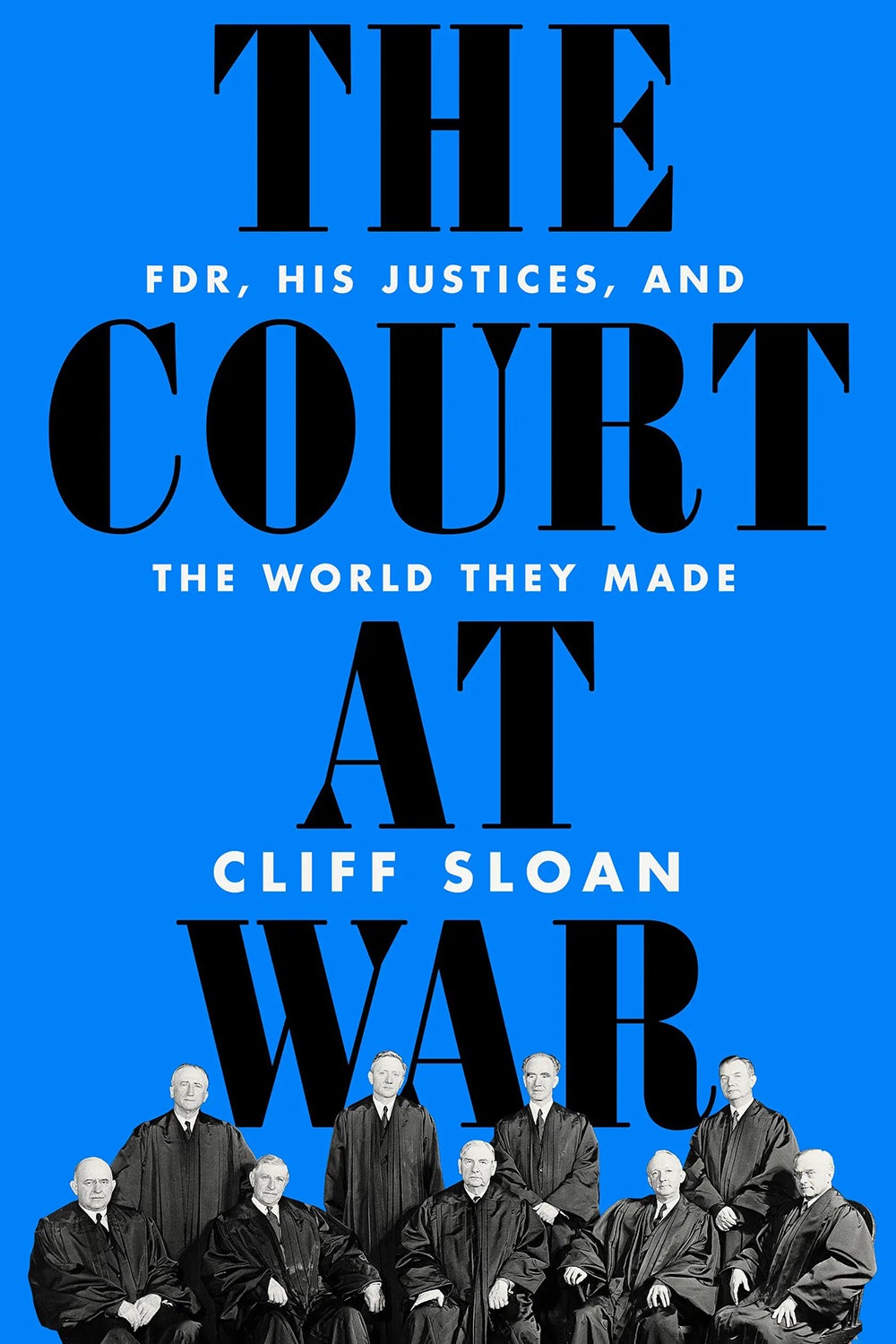
Cliff Sloan ’84 joined the Harvard Law School chapter of the American Constitution Society for a discussion of his forthcoming book “The Court at War: FDR, His Justices, and the World They Made.” Now a professor at Georgetown Law, Sloan was formerly Special Envoy for Guantanamo Closure at the U.S. State Department, and former publisher of Slate magazine.
From Hachette Book Group: “By the summer of 1941, in the ninth year of his presidency, Franklin Roosevelt had molded his Court. He had appointed seven of the nine justices — the most by any president except George Washington — and handpicked the chief justice.
“But the wartime Roosevelt Court had two faces. One was bold and progressive, the other supine and abject, cowed by the charisma of the revered president.
“‘The Court at War’ explores this pivotal period. It provides a cast of unforgettable characters in the justices — from the mercurial, Vienna-born intellectual Felix Frankfurter to the Alabama populist Hugo Black; from the western prodigy William O. Douglas, FDR’s initial pick to be his running mate in 1944, to Roosevelt’s former attorney general and Nuremberg prosecutor Robert Jackson.
“The justices’ shameless capitulation and unwillingness to cross their beloved president highlight the dangers of an unseemly closeness between Supreme Court justices and their political patrons. But the FDR Court’s finest moments also provided a robust defense of individual rights, rights the current Court has put in jeopardy. Sloan’s intimate portrait is a vivid, instructive tale for modern times.”
Why Flying is Miserable and How to Fix It
Ganesh Sitaraman ’08
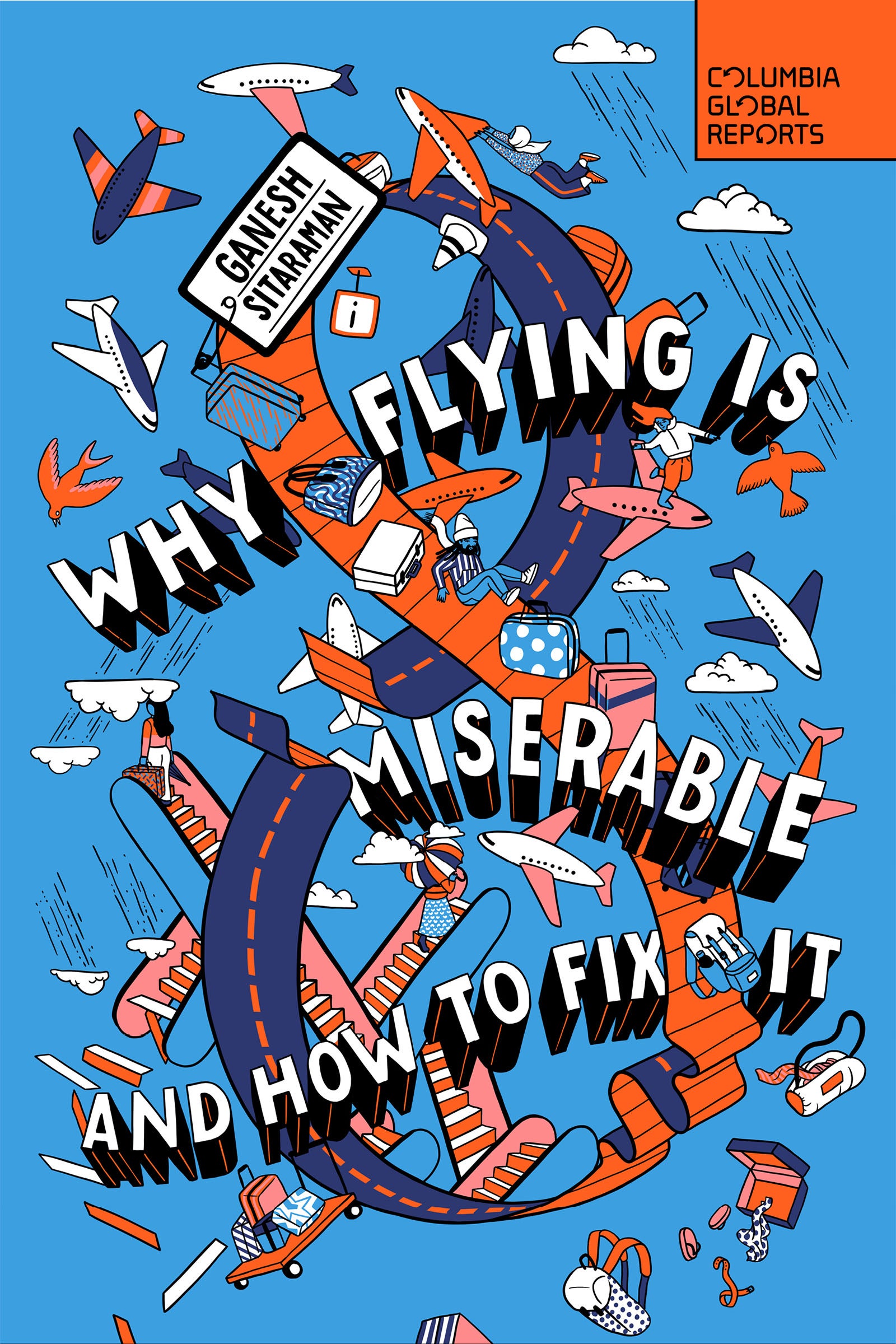
In November, Vanderbilt Law Professor Ganesh Sitaraman ’08 visited Harvard Law for a discussion co-sponsored by Harvard Law School ACS, the South Asian Law Students Association, and the Law and Political Economy Student Association on “the harms of excessive deregulation” using his book “Why Flying is Miserable and How to Fix It” as a starting point.
Harvard Law Today also recently spoke with Sitaraman in advance of the holiday travel season about the problems plaguing the air travel industry today and reforms he believes would help stop the slide.
From Columbia Global Reports: “Everyone has a horror story about air travel — cancellations, delays, lost baggage, tiny seats, poor service. In this day and age, there is no reason that flying should be this bad. In ‘Why Flying Is Miserable,’ Ganesh Sitaraman, a law professor and policy expert, explains how this happened: It was a conscious choice made by Washington in the 1970s to roll back many forms of regulation that began during the New Deal, in the name of unimpeded capitalism and more competition. Today, the industry is an oligopoly, with only four too-big-to-fail airlines that have received billions of dollars in taxpayer bailouts and still can’t offer reliable service.
“Miserable air travel is the perfect symbol of the type of unregulated capitalism that America has unleashed. But there are ways to fix airlines — and, by extension, many other sectors of industry — because, after a half-century run, people are sick and tired of the turbulence that deregulation has brought to our economy.”
